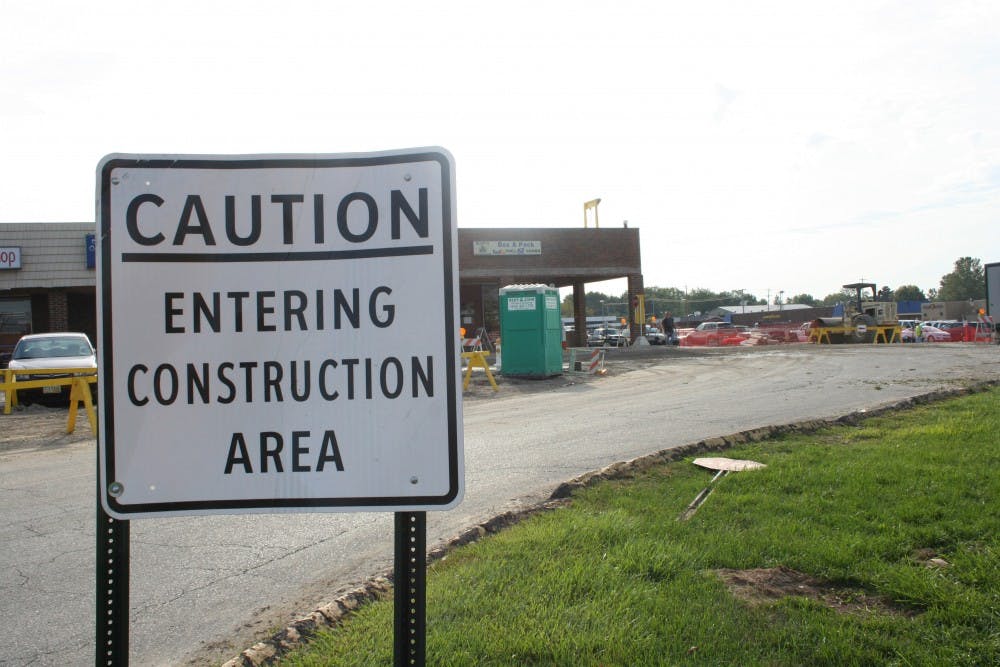Last summer, the Westerville City Council approved a plan to build a 108,000-square-foot Wal-Mart within the Westerville Square Shopping Center with an expected completion in 2013.
With construction now underway, reality has set in for Westerville residents and business owners.
In a community driven by small business, residents battled for years against efforts to build a Wal-Mart. When developers proposed a plan in 2000 to build a Wal-Mart in Westerville, the city council voted against it.
City Council Chairman Mike Heyeck said that many of the business and traffic concerns raised by the community for years have been addressed in the city’s planning for a new Wal-Mart.
“You must place Wal-Mart in the context of the entire Westerville Shopping Center improvement and the improvements made along our Gateway on South State Street from I-270 through the Schrock and State intersection,” Heyeck said in an email. “The key is to be inviting to commerce to improve business traffic all along the corridor.”
This open invitation to commerce means the city will not discriminate against corporate businesses for the sake of protecting local businesses.
Adel Shadi, the co-owner of Java Central, said, “It’s not going to affect us, but the small businesses here that sell the same things as Wal-Mart could be affected. … I’ll be upset if their existence affects small business around here, but other than that, it’s fair game. They aren’t breaking any rules.”
Lucas Karavolos, a Westerville resident, said, “I’m not a big fan of Wal-Mart because their allegiance is not necessarily to the local community.”
Otterbein freshman Maggie Lynch, an environmental science major, said that the situation seems to be a matter of innovation versus preservation.
While she occasionally shops at Wal-Mart, Lynch believes that it is necessary to keep those habits in balance with habits of buying local produce and investing in local business.
Junior psychology major Abby Forshey said, “I know I will find myself at this new Wal-Mart once in a while, but I still feel like it will take away from local businesses and maybe even the spirit of our cute, little Westerville.”
“I’m guilty of buying things from Wal-Mart because it’s cheap,” Lynch said. “But in reality, if we only had local markets, then we’d figure out how to afford it.”
Tendencies to shop for the lowest price have encouraged many consumers to shop at Wal-Mart, with its “Save Money. Live Better.” slogan.
Whether it is a sign of the current state of the economy or just a change in social behavior, both Heyeck and Karavolos said they have to adapt to business practices and social tendencies of the present time.
“Look at Westerville, it had a reputation of being a dry town, and look how it’s changed over time,” Karavolos said. “Change isn’t always bad, but I think Wal-Mart is the kind of business with a big footprint, and it takes away from businesses all for the betterment of Wal-Mart and its shareholders. I’d rather see small business prosper, so the money comes back to the town. I happen to believe that small is better.”
Heyeck said he believes commerce that a corporation like Wal-Mart promotes is going to help — not hurt — small business in Westerville. He said that the two business models can coexist.
“If businesses prosper, our citizens prosper,” Heyeck said. “I believe all business will benefit from the increased commerce.”








